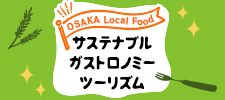Risa Aizawa × Osaka Popcultue
Popcal women's three-person trip

We asked three pop culture girls, Risa Aizawa, illustrator Chiaki Harada, and Arina, the manager of the maid cafe MELCAFE, to tour Osaka and talk about Osaka's pop culture.
Three pop culture girls
Aizawa: I'm Risa Aizawa, also known as Risachi. I usually work as a leader in a group called "Dempagumi.inc". In addition to that, I am also involved in multiple activities such as collaboration unit ``LAVILITH'' and apparel brand designer ``MEMUSE'' and voice actor.
Harada: My name is Chiaki Harada and I am an illustrator and manga artist.
Arina: My name is Arina and I am the manager of "MELCAFE".
``I want to be two-dimensional'' is how the three of us met.

Aizawa: Every year, for my birthday event, I muster up the courage to ask people I love to draw illustrations of me. I love manga and games, and I often say, ``I want to become 2D as soon as possible,'' so on my birthday, I try to make my favorite artists 2D to fulfill my selfish desires. I reward myself by making it dimensional. I've always been a big fan of Mr. Harada, so one day I took the plunge and asked him to do it, and he accepted. So when I met her, I was like, "Huh? She's such a cute girl!" (laughs)
Then, one day, I heard that Chiaki-chan was having an event at MELCAFE, and I said, ``I want to go!'' When I went to visit, I met the store manager, Arina. I used to work as a manager at a maid cafe in Akihabara, and I really liked making things from scratch with other girls, and there's a kind of bond and culture that can only be created there. I really sympathized with the fact that they were working so hard on this, and we ended up talking about the future of maid cafes today as well (lol).

The circle of community expanding through SNS and pop culture
Harada: I really feel like the people who are messing around at home and drawing pictures are meeting each other on SNS and forming a circle.
Arina: People who like pop culture may have a better ability to form communities. Maybe it's because we have something in common that we like.
Aizawa: Beyond looks, age, and gender, it's easier to convey what a person likes, what they want to express, and what they're serious about on SNS. Before the person. I'm also an otaku, so I trust characters and people who understand their feelings more than people who are real. First of all, I start from a place where I can trust someone, and once I can trust them, when I meet them, it's like we're friends.
Connect with overseas fans through pop culture and SNS
Harada: When I went to Taiwan before, a gallery approached me and said, ``We'd like to exhibit it,'' and I even made a book there.
Harada: I couldn't have done it without the internet.
Aizawa: I can't live without it (lol)
Arina: When I went to Taiwan, there were already some Harada-san fans there.
Harada: How did you know? It becomes.
Aizawa: Compared to Japan, we don't have many concerts or merchandise, so our overseas fans do a lot of research on the internet, and they try their best to send us replies like ``Today was fun'' in Japanese. I'm really happy to see some people doing that.
Harada: I feel like crying when I receive a letter in Japanese. ``Wow, you're amazing at writing hiragana! You did your best!''

Arina: I am also a customer of MELCAFE. Rather than stopping by while passing by, many foreigners find out about our store through the Internet and come to visit us. People write reviews on their own country's websites, and even when we looked into them, we couldn't find them, but they were written in Korean or Chinese. But I think reviews from overseas are better.
Everyone: I'm really happy that people overseas know about us.
About Osaka and Osaka's pop culture

Aizawa: I'm from Osaka, but I only went there when I was really young, so I don't really have many memories of it. Idols often publish their birthplace, blood type, birthday, etc. in their profiles, and fans who have never met them first try to find a connection with them from there. However, I had never lived in Osaka much, and I didn't have many memories of it. Since I started being an idol, I have often come to Osaka, and Dempagumi's first expedition event is also in Osaka, but since the new system has been established, the first live show will also be in Osaka, and Dempagumi will be doing it for the first time in Osaka. There were a lot of things. Because of that, my fans were happy to see me come back to Osaka, saying, ``Welcome back,'' and I was like, oh, it's okay to make Osaka my hometown. Until then, I was like, ``I'm sorry for writing down my hometown even though I haven't lived there that much!'' (laughs) On the other hand, I was ``happy!'' that the fans recognized me, and that alone made me feel like ``we are the people of Osaka'' (lol)

Osaka is a city where everything becomes pop culture, and it's fun to look for it.
Aizawa: I think people in Osaka have a wonderful sense of color. Many of the artists I've found online that I'm interested in are from the Kansai region, and all of the people I'm collaborating with are from the Kansai region, but I'm naturally drawn to colorful and vivid works. I wanted to incorporate that. I feel that many people are good at showing what they want to show with bold compositions. I think people in Osaka have a very strong ability to express themselves by saying, ``I like what I like.'' So it's fun to work together. It's easy to expand the story. As we continue to incorporate new things that we find interesting, that kind of enthusiasm becomes pop culture, or rather, anything becomes pop culture. I think that's great.

Harada: I've been working as a writer in Osaka for a long time, but there are some artists who are dull and earthy, and those who move to Tokyo tend to become more sophisticated in their work. The people who work in the world of music have a unique, muddy feeling, and that's condensed more and more, and it's okay to call them ``Nicya'' whether they're active in singing or drawing.
Aizawa: There's an easier way to create works without hurting yourself, but that's not the case.
Harada: I'm clumsy.
Aizawa: I want to do it my own way. Like.
Harada: After all, it is the people who have expanded to Tokyo that become the main culture, but I feel that underground culture has developed in a unique way in Osaka.
Harada: I feel like the galleries in Tokyo and Osaka have different exhibits and atmospheres. There was a place in Nihonbashi where I had been exhibiting for a long time, and it seemed like people wouldn't get mad if I knocked out the ceiling. There may be many people who do things like lay railroad tracks, plant trees, spread dirt, etc. as an extension of their play.

Arina: Osaka has a niche feel. When I say pop culture in one word, I feel like in Tokyo it includes more beautiful and sparkling things, but people in Osaka are good at finding niche things, and creating things that are a little quirky and different from others. It feels like different things are coming together. I often feel strange that something that is famous within Osaka may seem strange when you go outside, or that it is normal within Osaka. Osaka is a city where you can feel like you're on a treasure hunt, as there are many places where pop culture is scattered and hidden.
lastly-

Aizawa: Today, I had a lot of fun listening to two people who know more about Osaka than me and learning about the more in-depth aspects of Osaka.
Harada: Even though I live in Osaka, I was able to go to places that I normally pass by and have a fresh experience, so I realized that there are still many places I don't know.
Arina: Usually, it feels different when I go alone and when I go with three people, and my impression is that everyone goes at their own pace (lol), and everyone stops at places they are interested in on their own, which I think is amazing. It felt comfortable and fun. It was more fun than going alone because you could see things that everyone was interested in.
Other “Popcal girls trip”







